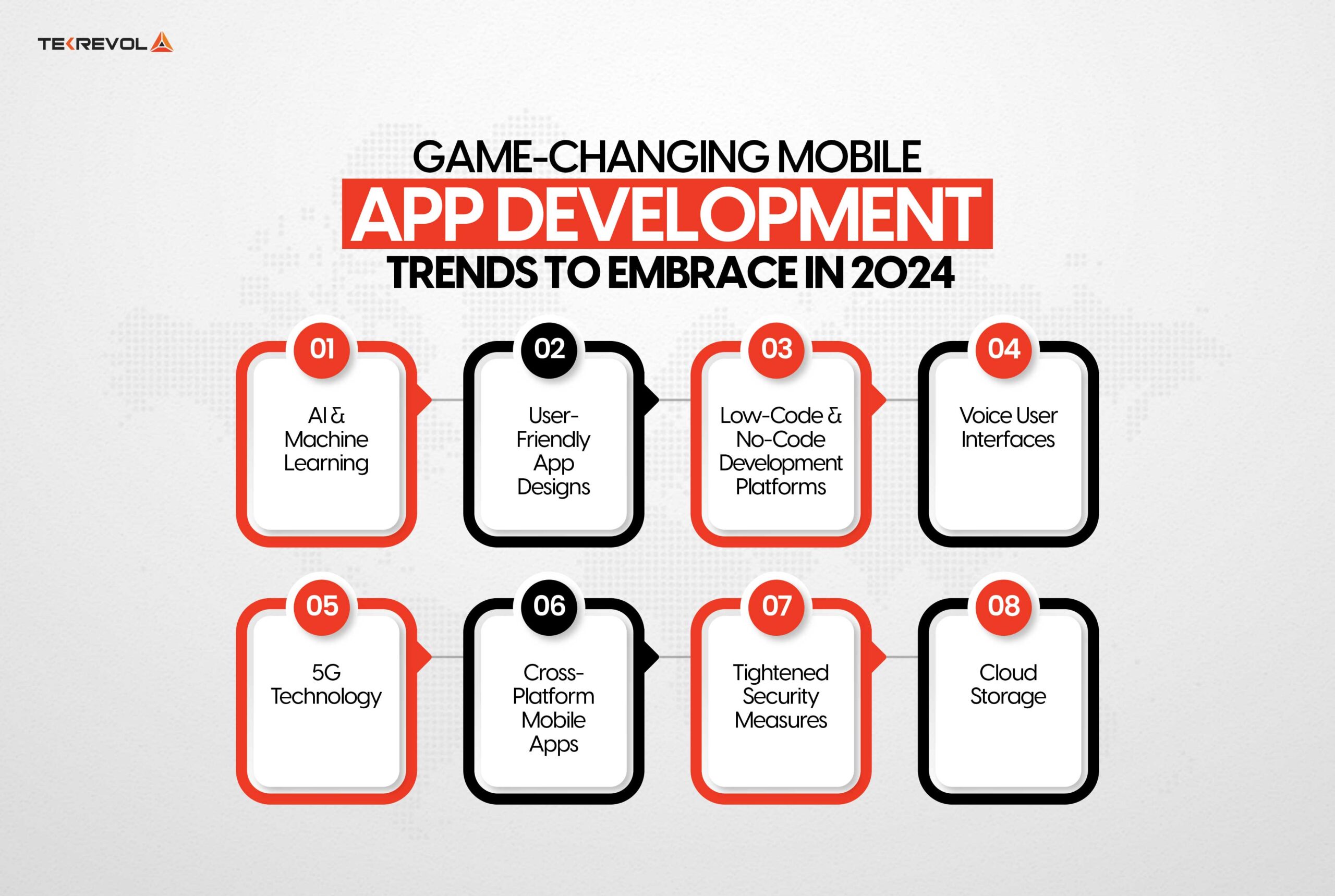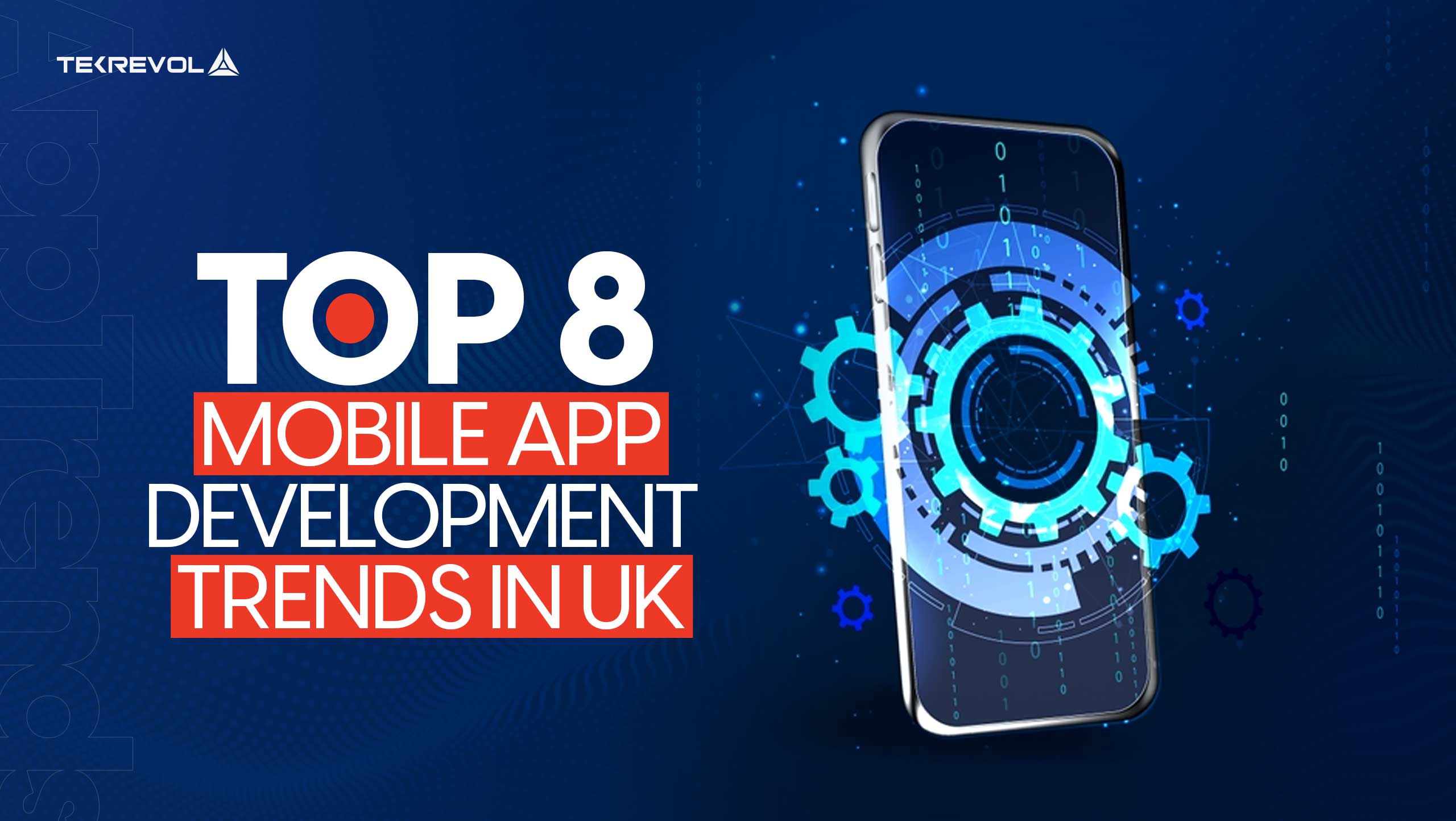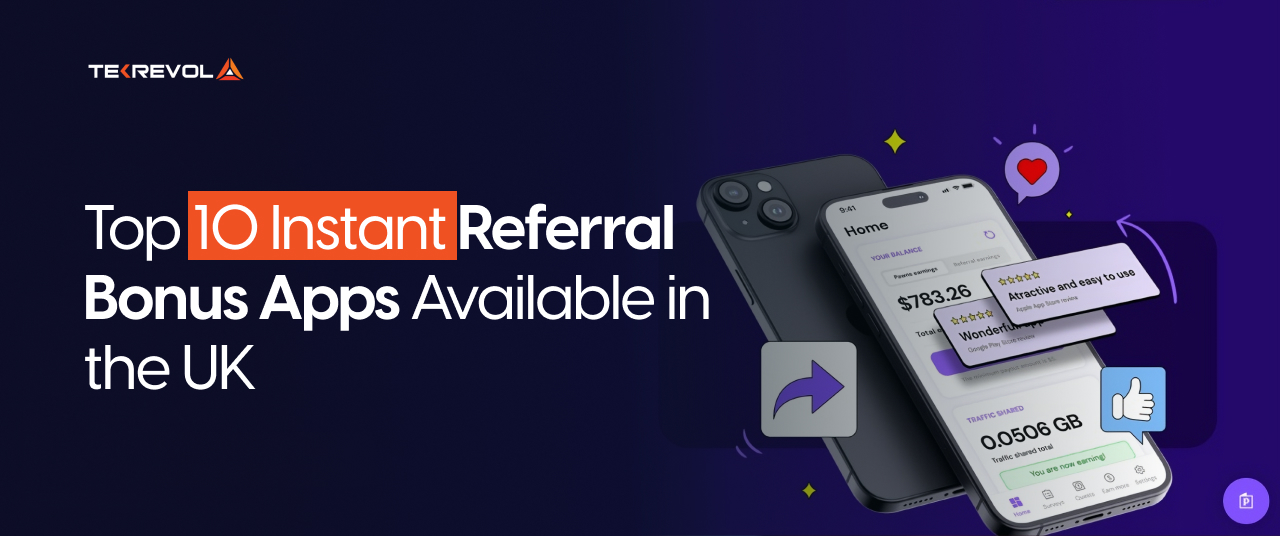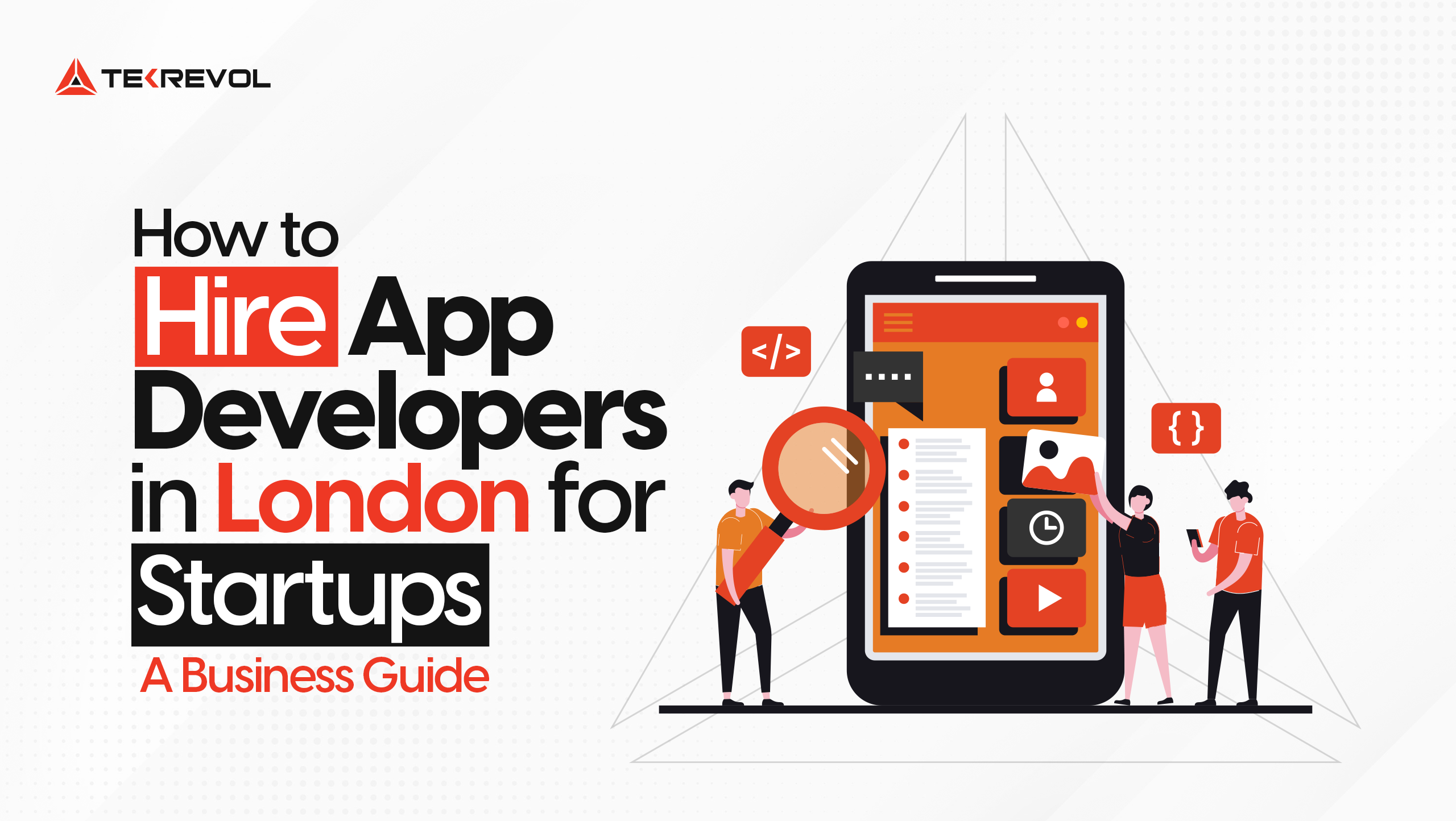Keeping up with mobile app development trends is a huge advantage for businesses looking to attract and engage new customers. As the use of mobile devices grows, developers must focus on mobile application optimisation.
While practically all interactive experiences shift to portable devices, performance must be optimised to keep users engaged. If you understand where the market is going, you may develop apps that will not only capture the user’s interest but also maintain it for an extended period.
Today’s popular trends may assist businesses in determining consumer preferences in a far more efficient and effective manner. Whether you want to enhance user loyalty or meet your mobile commerce goals, a good mobile app development company in UK can help you leverage these trends.
In this blog, we will look at the current and future mobile app trends that are shaping the mobile app market in UK and will help you design experiences that connect with people and promote digital breakthroughs. So let’s get started!
Game-Changing Mobile App Development Trends to Embrace in 2024

Mobile app development has hit new milestones in the year 2024 with innovations in the development process. For any app development company UK, it is crucial to maintain and develop these application development trends to create the best apps that fit the current market. So, here are the most notable app trends shaping the industry:
AI and Machine Learning
AI and machine learning are key to the current mobile app boom and development. These technologies have a significant impact on the mobile application production and usage process, and they are game changers that have changed the overall user experience.
AI & ML enable businesses to maximise customisation, streamline critical tasks, and improve overall corporate performance. The usage of these technologies enables application developers to create intelligent applications that improve user experiences and are responsive to user needs.
The key AI and ML features in mobile apps are:
Image Recognition: Artificial intelligence can detect things in photos to categorise them, allow for image searches, and even employ facial recognition to secure access to a specific application.
Real-Time Language Translation: It also facilitates communication among users by offering real-time translation services and removing language barriers.
Personalised Virtual Assistants: From Google Assistant to Siri, incorporating human-like virtual assistants into various apps, which frequently give users relevant content, is quite popular.
Predictive Analytics: Artificial intelligence can recommend activities based on user actions and data analysis, hence improving user experience and contributing to improved stickiness.
User-Friendly App Designs
Developing apps and ensuring usability in the early days of app development was a difficult process due to the variety of forms and methods for designing mobile apps. While developers can still innovate, the emphasis is increasingly on consistent and recognisable patterns that improve the UX/UI for users.
The usability and quality of the app’s design have a significant impact on user engagement. Mobile applications’ user interfaces should be designed in a way so that everyone, even children and others with little to no technology literacy, may use and navigate them with ease. Proper structure helps to improve usability, which benefits firms that deal with app-based sales and customer loyalty.
The following features contribute to an app’s usability:
Intuitive Navigation: There should be a smooth transition from one component of the program to the next. Avoiding a complex design improves the overall app experience.
Personalisation: By utilising data such as demographics, contextual triggers, and usage data, programs can display content that is more relevant and hence more interesting to users.
Responsive Design: Responsive designs ensure that the software adapts effectively to all potential devices, from phones to tablets.
Data synchronisation: Some people switch from one device to another. Providing the option to integrate information between different devices ensures that users do not lose data or have to reset settings to their default state.
Low-Code and No-Code Development Platforms
The concept of little and no code has gotten a lot of attention in recent years since it allows organisations to construct mobile apps in a more flexible cost-effective way. It’s worth noting that these platforms allow users to construct effective apps without understanding any programming language at all.
Low-code platforms enable individuals (developers or end users) to visually construct apps without having to write a lot of code. It is appropriate for small and developing organisations, startups, or any team that needs a solution to quickly construct a minimal viable product (MVP) with little to no time and resources to develop applications from scratch.
Some common use cases for low-code and no-code development are:
Rapid Prototyping: The ability to quickly and effectively develop a working model from the app idea that can be subsequently tested and improved.
Building MVPs: It can assist entrepreneurs and enterprises in creating and deploying MVPs to obtain real-world customer feedback before investing in full-scale product development.
Streamlining company Processes: These platforms can be utilised to create more efficient internal tools or applications that improve company processes without requiring specialised app development.
Customer-Focused Apps: It will allow for the development of stereotypical customer-focused apps that provide simple solutions for tasks, meetings, appointments, and even basic e-commerce.
Voice User Interfaces
VUIs are set to become one of the most important trends in mobile apps, as more people, regardless of age, adopt voice technology into their daily lives. Voice assistants, such as Apple’s Siri and Amazon’s Alexa, are transforming how users interact with their devices. A poll revealed that 46% of users favour Alexa, 26% like Siri, and 24% found Google Assistant useful.
Mobile apps with voice functionality increase accessibility and encourage creativity, which are two benefits. They make the app more inclusive for a larger audience and allow users to engage with your company in new and exciting ways.
Advantages of integrating voice interfaces into mobile apps include:
Voice Search: Rather than using a keyboard and mouse, users can vocalize their questions to find content within an app.
Voice Navigation: The VUI can give directions to users about apps and enhance the whole user experience thus making it spectacular.
Task Automation: Voice assistants can allow users to complete tasks like setting reminders, scheduling appointments, or sending messages inside the app.
5G Technology
5G technology is the next frontier in the mobile application development trend, providing high-speed data, reduced latency, and improved internet connectivity. These advancements help businesses to create interesting mobile applications that provide a pleasant consumer experience. Whether it’s faster app run times, improved user interfaces, or seamless mobile payment services, 5G can take app performance to the next level.
The key advantages of 5G technology for mobile apps are:
Enhanced User Experience: Faster data transmission leads to improved app design, quicker loading/launching times, and higher levels of interactivity, and all of them culminate in enhanced levels of user satisfaction.
Real-Time Capabilities: 5G can support other applications that are real-time like face recognition, video conferences, and online gaming among others since they require real-time responses and experience.
Immersive Experiences: Regarding mobile applications, 5G allows mobile applications to provide high-definition, real-time app interactions and the integration of technologies such as AR/VR.
IoT Integration: 5G enables IoT at scale, which means businesses can build mobile apps for controlling or managing smart devices in real-time, from home automation to industry.
Cross-Platform Mobile Apps
Creating multiple applications for the same product across various operating systems is another current trend in application development that aims to reach a wider audience while lowering development costs.
The process of creating apps for the iOS and Android platforms is made easier by mobile application development frameworks like Flutter and React Native. This has the effect of requiring less time and effort to quickly bring an app to market across many platforms.
The strategy of developing applications for several platforms is more effective for companies that intend to create mobile commerce applications, social networks, or other applications, which need to be accessed by everybody. In this way, companies can make sure that their apps are accessed by more individuals while at the same time keeping costs of development relatively low.
Key benefits of cross-platform mobile apps include:
Cost Savings: Developing and maintaining apps for many platforms from a single code base eliminates the need for a separate workforce, lowering costs.
Faster Time-to-Market: Cross-platform frameworks help developers deliver apps to the marketplace more quickly, allowing businesses to get their products to market faster.
Wider Audience Reach: As it is designed for both iOS and Android platforms, businesses may reach a larger audience from the start and increase app usage visibility.
Native-Like Performance: Newer technologies, such as Flutter and React Native, deliver almost native performance, allowing users to have a fluid and seamless experience on whichever device they want.
Tightened Security Measures
Mobile app adoption is increasing, making effective security measures for mobile apps even more vital. One of the most important trends observed is a growing concern for user data privacy and cyber threat prevention across businesses. As cyber dangers grow, businesses are integrating stronger security measures to protect their applications and earn consumer trust.
Consider the following key security procedures and practices while developing mobile apps:
Data Encryption: Encrypting information that flows and is stored in networks so that it cannot be understood if intercepted by an unauthorised person without the decryption key.
Biometric Authentication: Facial recognition, fingerprint scanning, or iris scanning to enhance security, which hard replicates and is specific to the user.
Two-Factor Authentication (2FA): Using something the user already has, such as asking the user to enter a code received by SMS message, improves user identity assurance.
Secure Coding Practices: Writing code that encrypts all sensitive data and continually updating the program to fix discovered security problems.
Blockchain Technology: The usage of blockchain in mobile applications can offer a secure and effective way of processing and exchanging data, notably in the financial sector.
Compliance with Security Regulations: By conforming to regulations such as GDPR or HIPAA, as well as regulations such as PCI-DSS, applications can be made secure while still meeting legal obligations.
Cloud Storage
While the applications continue to evolve and perform heavier tasks that involve processing and transferring data, conventional storage approaches are challenged. Cloud storage has thus become a crucial solution and an app development trend in 2024 in providing secure and manageable solutions that enhance app performance and user experience.
With the help of cloud storage, developers make it possible to synchronize the data across the various devices, so the users can open the content wherever they want without overloading the devices.
Key benefits of cloud storage for mobile apps include:
Data Accessibility & Syncing: Users can easily get copies of their files on any device, thereby enhancing the usability and overall satisfaction of users.
Data Backup & Security: Storing files in clouds guarantees their availability in the event the device fails, with encryption offering added security.
Optimized Performance: Storing data in the cloud enhances the efficiency of the application, especially for larger data such as pictures and videos.
Scalability: Cloud storage increases in tandem with the app, accommodating more users and data without being hindered by hardware restraints.
Cost Efficiency: Pay-as-you-go cloud plans entail little to no investment in hardware, thus lowering development costs.
Collaboration: For productivity apps, real-time file sharing and editing of files is much easier via cloud storage.
IoT & AI Integration: Everything in the cloud helps developments in technology such as IoT and AI where data is processed in real-time and application performance is boosted.
The Bottom Line
The trends in mobile application development are determined by the ever-changing technology as well as enhancements in users’ requirements. To design apps that fit these trends, significant research needs to be carried out on competition and user behavior.
As a leading mobile application development company in the UK, TekRevol focuses on identifying the most popular trends in the industry, as well as strategic goals, targets, and consumer expectations.
We provide one-of-a-kind mobile app solutions for improving user experience, increasing performance, and maximising ROI. Hire our team to bring your vision to life, creating a solid and long-lasting mobile application.
- Looking for a Future-Proof Mobile App Solution?
- Our Team Guide You Through the Latest Technologies for a Custom Solution











